Dong Fang Hotel, Guangzhou, September 22nd , 2017: The 2017 China (Guangdong) International Think Tank Forum of the 21st Century Maritime Silk Road rose its curtain. In two days, the forum was to discuss building the road of prosperity together. More than 300 hundred people, consisting of politicians, experts, scholars, representatives of Think Tanks, elites of enterprise from Britain, Canada, Russia, South Korea, China and other 21 countries, conducted research and had deep discussions, together promoting the Think Tank communication and knowledge sharing between the countries along the Belt and Road and China.
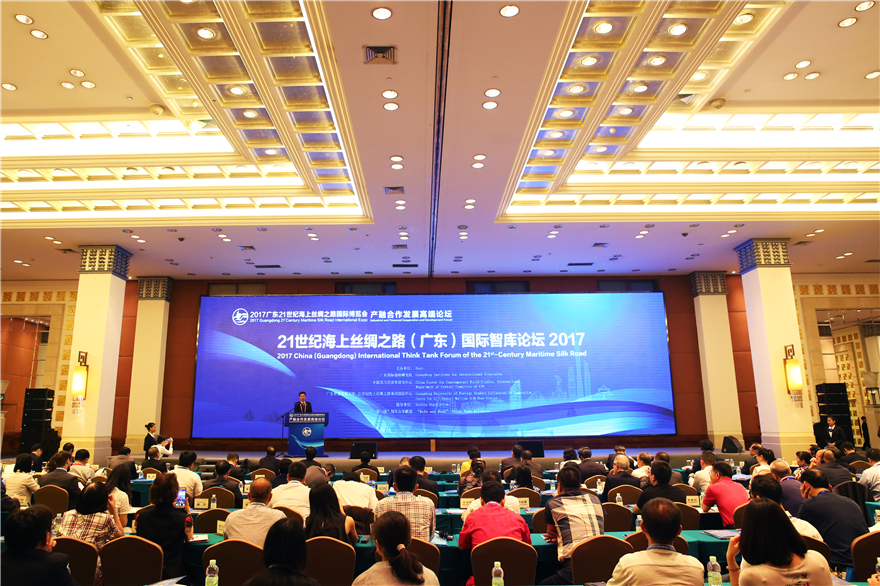
Site of the forum
Under the instruction of China’s Belt and Road Think Tank Union, the forum was held by Guangdong International Strategy Institution, China Center for Contemporary World Studies of the International Department and the 21st century Maritime Silk Road Collaborative Innovation Center, winning the support of the International Department, Ministry of Foreign Affairs, Commerce Department and other Central ministries and commissions and the Guangdong government. The forum was to achieve consensus about building the 21st century Maritime Silk Road among the countries along the Belt and Road and China, while reaffirming China's concept of peaceful development, making full use of Maritime ties and devoting to build a sharing and flourishing 21st century Maritime Silk Road.
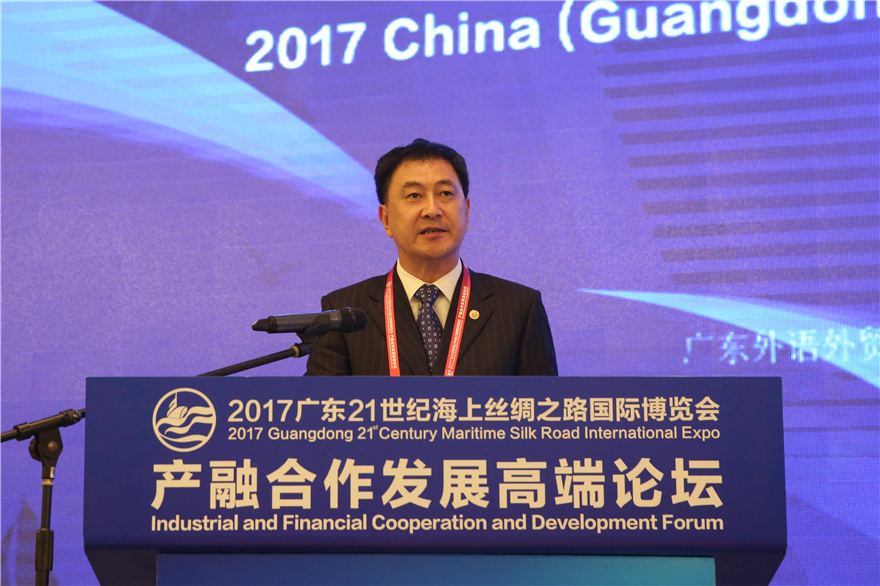
SUI Guangjun hosted
SUI Guangjun, General Secretary and President of GDUFS, the Standing Vice Dean of Guangdong International Strategy Institution and the director of 21st century Maritime Silk Road Collaborative Innovation Centre, who hosted the forum's opening ceremony, mentioned that the International Cooperation Forum of the Belt and Road held in Beijing this May drew a complete conclusion to the process of the Belt and Road in the past four years, and made a macro instruction about structuring the Belt and Road in the future. Therefore, the 2017 Think Tank Forum would surely promote a deep communication between the Think Tanks of the countries along the Belt and Road, realizing a tighter teamwork of international trade and investment, cooperation of productivity, globalization and its harness.
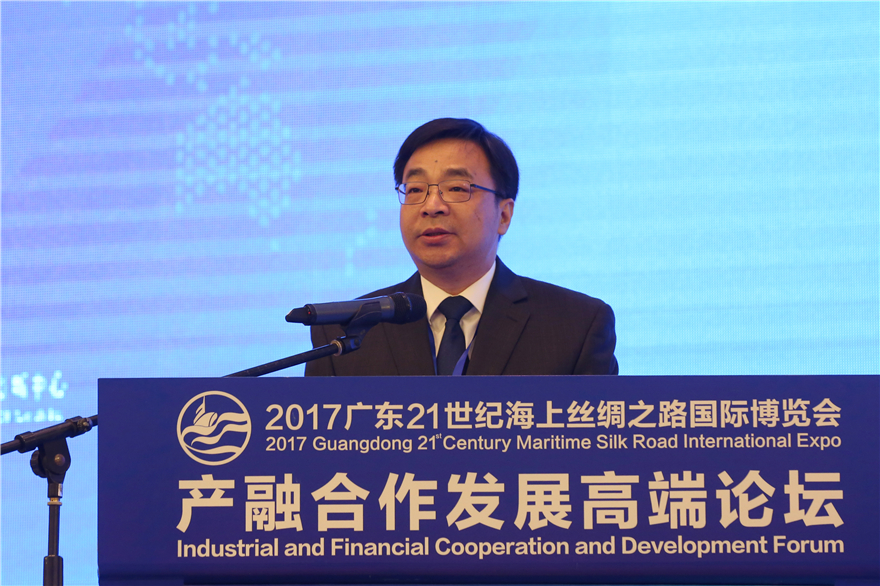
HUANG Zheng spoke
HUANG Zheng, Deputy Director of the Policy Planning Division in the Ministry of Foreign Affairs, said that the Belt and Road initiative is a living example of Chinese diplomatic policy, which matches each country's hope of development and cooperation. About the future structure of the Belt and Road, we should emphasize achieving a mutual development through win – win cooperation, and contributing to a community of a shared future for mankind by gathering wisdom and strength globally.
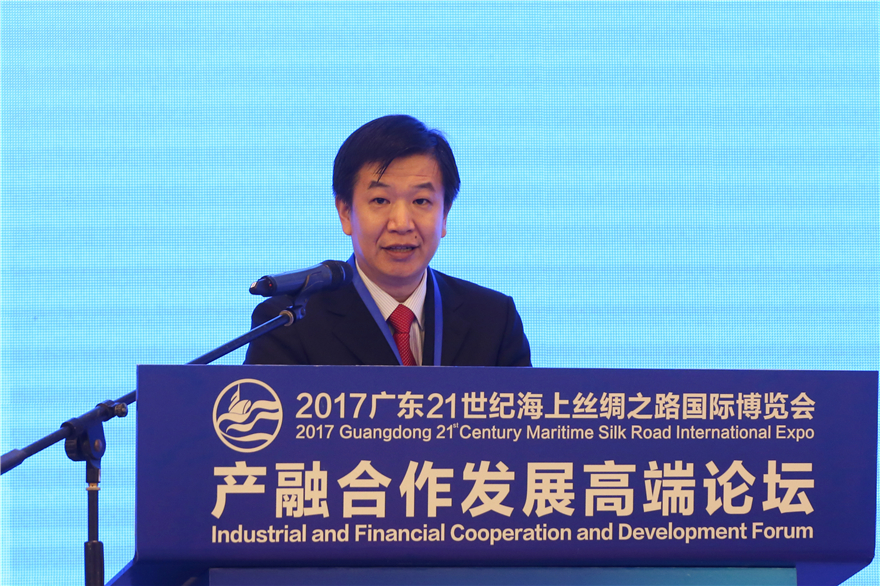
WANG Liyong spoke
WANG Liyong, Vice Director of China Center for Contemporary World Studies of the International Department, approved the difference made by Think Tank and indicated that each country should strengthen international communication.
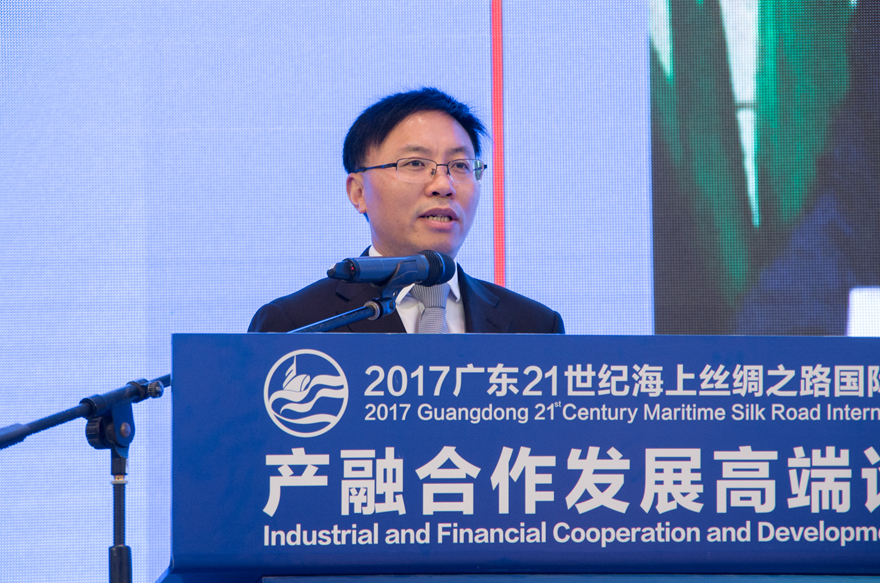
ZHENG Jianrong spoke
ZHENG Jianrong, Director of Guangdong Commerce Department, stressed on developing the offshore areas and the correspondence of ports among the countries.
Besides, ten experts shared their opinions on building the 21st century Maritime Silk Road. Vice President of Nankai University TONG Jiadong, in terms of the theory of geography, policy and economy, stated that China plays a contact and bridge role in world economic and trade relations. ZENG Zhihua, senior economist at the World Bank, analysed the influence of industrial chain made by technology development in detail. Yves Tiberghien, Dean of Asian Research Institute in University of British Columbia, Canada, made specific suggestions about constructing the Belt and Road from a globalization angle. JIN Canrong, Vice Dean of the School of International Studies, Renmin University, approved the major effect of China’s manufacturing industry. Jekuk Chang, President of South Korean Dongseo University, offered a new thought and view on the relationship between the Belt and Road and higher education.
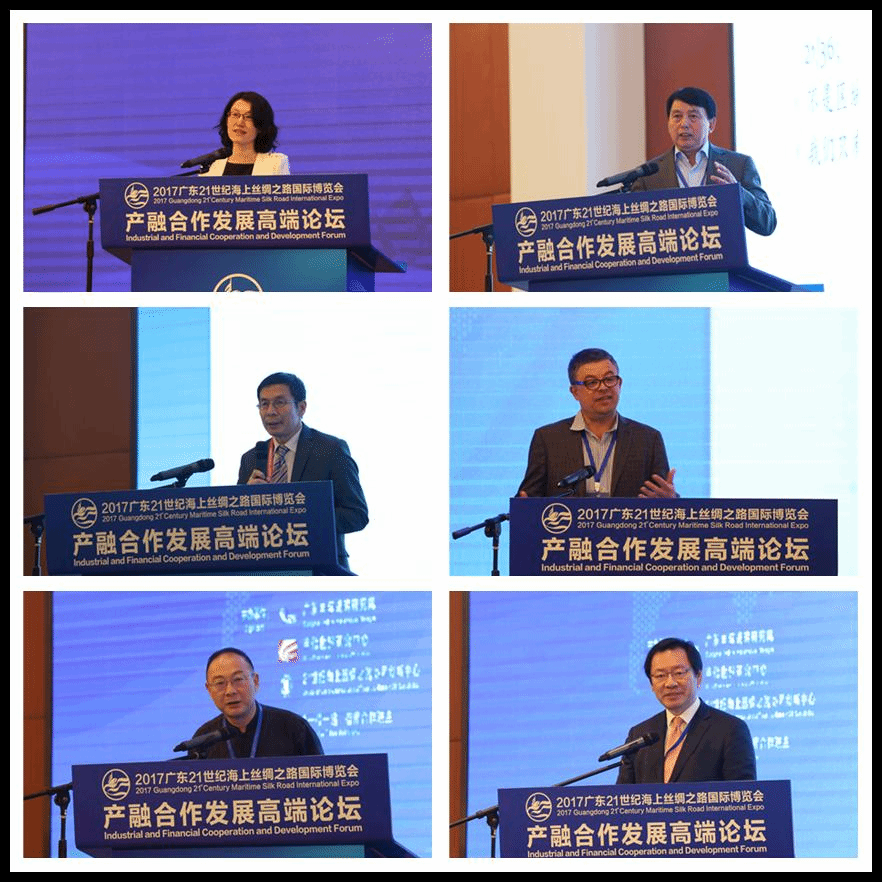
ZHANG Wei hosted, TONG Jiadong, ZENG Zhihua, Yves Tiberghien, JIN Canrong, Jekuk Chang spoke
Prapat Thepchatree, Director of National University of Thailand ASEAN Studies Center, conveyed the hope of tighter cooperation between ASEAN and China. ZHOU Fangyin, Director of Strategy around China Research Center in Guangdong International Strategy Institution, emphasised the necessity of building the Belt and Road under the complex world setting. B.R. Deepak, Director of Center for Chinese Studies at Jawarharlal Nehru University, analysed the influence of China in the world. Tony Browne, Former New Zealand ambassador and Director of the Confucius Institute at Victoria, showed the intent of taking an active part in constructing the Belt and Road. WANG Zhimin, Director of Institute of Globalization and Chinese modernization at UIBE, analysed the dialectical relationship of the Belt and Road in the Indian Ocean geopolitical vision.
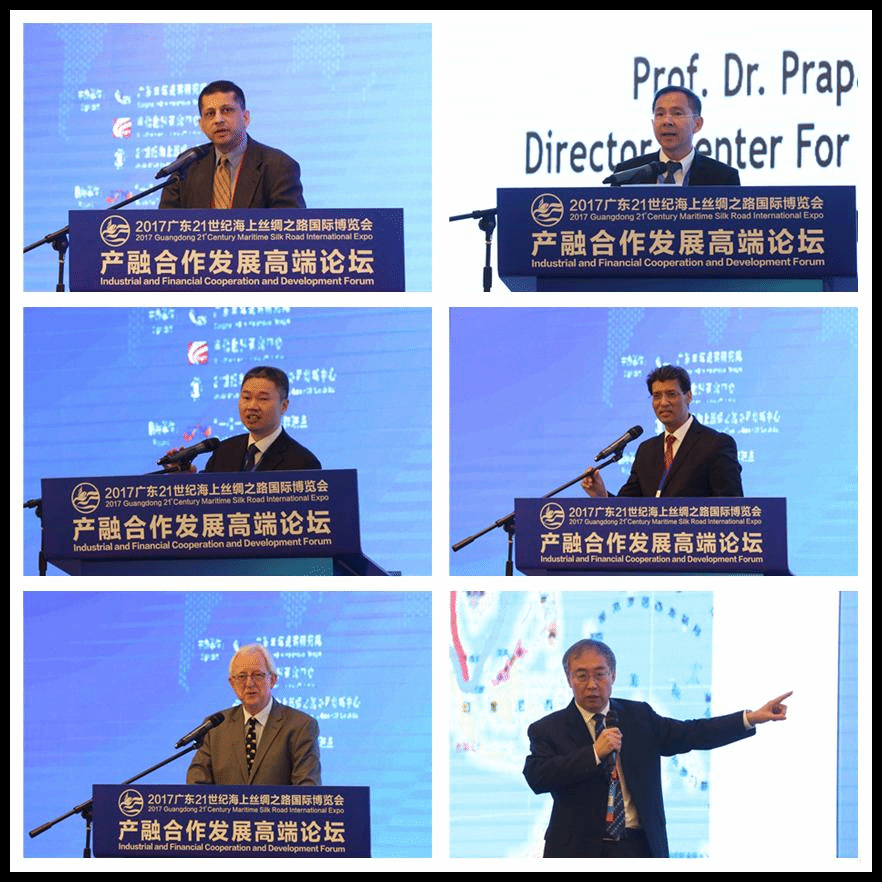
Syed MunirKharsu hosted, Prapat Thepchatree, ZHOU Fangyin, B.R. Deepak, Tony Browne,WANG Zhimin spoke
Six theme reports were made during the forum, with 16 invited guests from home and abroad providing policy statement and three sets of parallel forums deeply discussing the issues of productivity cooperation, trade and investment and globalization. These issues, basing on the practice of building the 21st century Maritime Silk Road, also raised a heated discussion among present specialists, who actively devoted proposals to build a political trusting, economy fused and culture inclusive community of interest, responsibility and destiny among the countries while achieve regional development and altogether wins.

